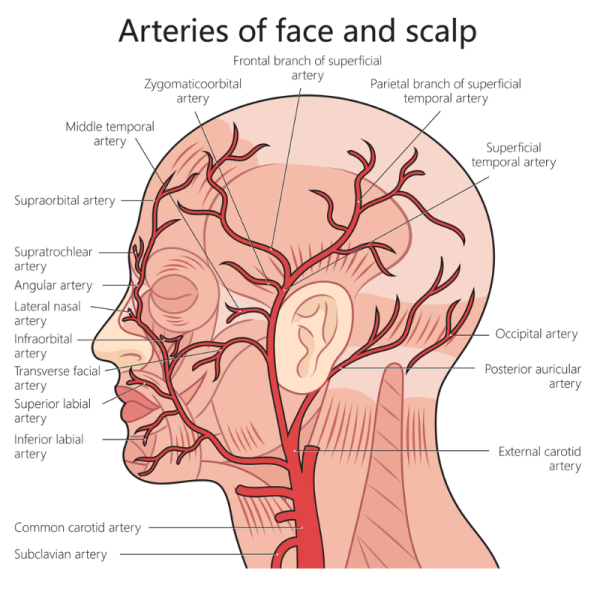You can now add Healthify as a preferred source on Google. Click here to see us when you search Google.
Giant cell arteritis (GCA)
Key points about giant cell arteritis
- Giant cell arteritis (GCA), also called temporal arteritis, is an uncommon but serious condition caused by inflammation of some of the arteries supplying blood to your head and neck.
- The arteries most often affected are the temporal arteries, which are one each side of your forehead.
- If the arteries become very inflamed, they can block the blood supply and sometimes cause permanent damage to the area the arteries supply.
- As the arteries that supply blood to the eyes can be involved, there is a risk of loss of vision or blindness if GCA isn't treated quickly.
- GCA mainly affects people over the age of 50 years.

Giant cell arteritis (GCA), also called temporal arteritis, is an uncommon but serious condition. It mainly affects people over the age of 50. It's caused by inflammation of some of the arteries that supply your head and neck.
The most common arteries to be affected are the temporal arteries. These are on each side of your forehead.

Image credit: Depositphotos
If the arteries become very inflamed, they can block the blood supply. This can sometimes cause permanent damage to the area the arteries supply.
As the arteries that supply blood to the eyes can be involved, there is a risk of vision loss if GCA is not treated quickly
A bad headache that's often worse at night is the most common symptom of GCA.
Other, less common symptoms include:
- scalp tenderness, especially when combing your hair or resting your head on a pillow
- pain in your jaw muscles when you chew
- blurred vision or other vision problems.
See your healthcare provider if you are experiencing these.
You may also feel generally unwell, eg, tired, depressed and feverish. You may be losing weight and not wanting to eat. These symptoms can appear well before a headache or other specific symptoms develop.
You may also have symptoms of polymyalgia rheumatica (PMR) which include pain and stiffness, especially around your shoulders and hips. This happens in about half of the people who get GCA.
Your healthcare provider will usually arrange a blood test to check for signs of inflammation. If you have GCA, your blood test will usually show signs of inflammation, although other conditions can also cause this. Occasionally, your blood test can be normal when you have GCA.
If you have typical symptoms, and especially if you have signs of inflammation, you will have an ultrasound of the temporal arteries on each side of your face. The aim of this procedure is to try to confirm the diagnosis of GCA.
Rarely, you will also need a temporal artery biopsy. This short procedure involves a surgeon removing a small piece of the temporal artery on the side of your face. They will then look at it under a microscope to check for inflammation. This is normally done under a local anaesthetic in hospital.
If your healthcare provider thinks you may have GCA, you will be treated with high-dose steroid tablets (prednisone) while waiting for your test results. The medicine works by reducing inflammation. You should see an improvement within a few days. They will gradually reduce your steroid dose to the lowest dose that stops your symptoms.
Because GCA can come back, most people need to keep taking steroids for 1 to 2 years, and some even longer.
Your healthcare provider may also start you on low-dose aspirin and a medication to protect your stomach.
Long-term steroids can reduce your bone density and may cause osteoporosis. So, your healthcare provider will usually give you advice about trying to prevent this.
If your GCA doesn't respond well to prednisone or you need high doses, you may be referred to a rheumatologist (a doctor who specialises in conditions affecting joints, muscles and bones). They may consider other medication such as methotrexate or azathioprine.
Giant cell arteritis(external link) Arthritis Australia
Polymyalgia rheumatica(external link) Arthritis NZ
Credits: This content has been collaboratively developed by Health New Zealand | Te Whatu Ora, KidsHealth, and Healthify He Puna Waiora to provide trusted health information.
Last reviewed:





